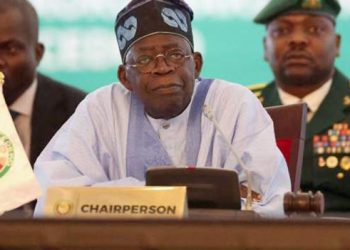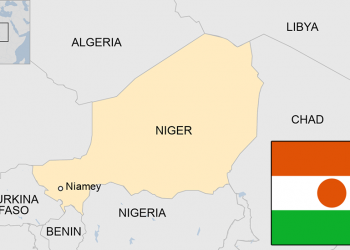About 5,306 terror-related attacks took place in West Africa in three years, claiming over 16,726 lives, thousands of injuries and millions displaced and living under austere circumstances.
Mr Dominic Nitiwul, Minister of Defence, also said that as of the end of the first quarter of 2022, 840 attacks had already resulted in 2,482 casualties.
The Minister was speaking at the opening ceremony of the Extraordinary Meeting of the Economic Community of West African States (ECOWAS) Committee of Chiefs of Defence Staff, on in Accra.
The two-day forum would offer the opportunity for Chiefs of Defence Staff to dialogue and discuss defence and security matters affecting the West Africa Sub-Region.
Countries present at the event are Ghana, Nigeria, Niger, Senegal, Sierra Leone, Togo, Benin.
Others are Burkina Faso, Cape Verde, Côte d’Ivoire, The Gambia, Guinea, Guinea Bissau and Liberia.
Mr Nitiwul said the Chiefs of Defence Staff had a pivotal role to play in shaping the defence and security policies needed to achieve regional peace and public safety.
He said the Sub Region was saddled with complex transnational crimes committed both in the physical and cyber domains.
Mr Nitiwul also said terrorist activities had assumed cross border dimensions with far-reaching implications for civil societies, regional security and global peace and development.
“In the land domain, countries are confronted with environmental degradation caused by illegal mining and illegal lumbering, development and expansion of slums, illegal migration, kidnappings and abductions, money laundering, proliferation of small arms and light weapons and the trafficking of narcotics.”
“The security situation is also compounded by threats to democratic stability, land and chieftaincy disputes, banditry and armed robberies, high youth unemployment, the menace of nomadic herdsmen and vigilantism,” he said.
He however noted that the meeting represented the will of the ECOWAS leadership to save the entire community and contribute to a favourable global peace and security situation.
The Minister said the fight against terrorism and activities of extremist groups could be won through accurate and predictive intelligence.
He said there was currently a limited collaboration amongst various national intelligence agencies across the Sub-Region, which had caused a serious limitation in the fight against the activities of Terrorist Armed Groups and Violent Extremist Organisations.
“These groups rather have increased collaboration and information sharing across national borders in a bid to outwit security forces and impose their will on the population.”
“As professionals, we must resolve to bury our differences imposed by nationality, culture, ethnicity, language, religion etc and forge ahead with greater collaboration.”
“It remains imperative that we bridge the gaps that exist in information and intelligence analysis to pave way for a better integration for effective political, social and military direction,” Mr Nitiwul said.
Vice Admiral Seth Amoama, Chairman of the Committee of Chiefs of Defence Staff expressed worry over the incidence of coup d’tats recorded in the last couple of years.
“Just as we thought we have to make a very significant progress in dealing with the situation in Malik and Gambia, similar unfortunate Burkina Faso and Guinea Bissau in January and February,” he lamented.
The Vice-Admiral however, expressed appreciation to ECOWAS Authority of Heads of State for their quick intervention in resolving the situations in these countries.
He said the Accra Initiative had been one of many ECOWAS Initiatives necessary to safeguard collective security in the interest of its people.
“It has become necessary to convene from time to time to update ourselves as Security Chiefs of the West African Region to take stock of issues that have been discussed and its implementation to safeguard our collective security in the interest of the good people of the region,” he said.
He encouraged them to synchronise efforts and strategise against terrorism in the region.
source: GNA

















































